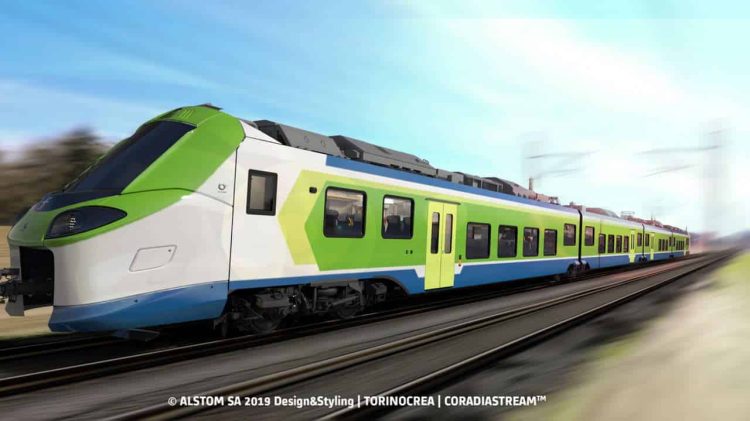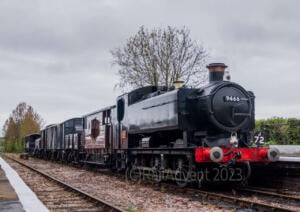Alstom is to supply two Coradia Stream H hydrogen trains to Ferrovie del Sud Est, transport operator of Italy‘s Puglia region.
These will be the first hydrogen trains to operate in the region, and will replace the current diesel trains.
Alstom will also supply two Coradia Stream H trains to Ferrovie Nord Milano in addition to the six trains it has already ordered. Its contract with Alstom allows Ferrovie Nord Milana to acquire a total of fourteen trains.
Alstom based its Coradia Stream H train on its single-deck Coradia Stream regional train platform. The company designed the trains specifically for the European market, and manufactures them in Italy.
When operating using green hydrogen, the Coradia Stream H produces no direct CO2. Alstom claims that it “offers the exceptional comfort appreciated by passengers”, and features innovations in clean energy conversion, efficient energy supply and storage system combined with intelligent energy management. Alstom was the first railway company to invest in hydrogen trains as an alternative to diesel traction on lines that are not electrified.
Several of Alstom’s plants in Italy are involved in producing the trains, including:
- the Savigliano site for development, certification, production and testing
- the Vado Ligure site for the outfitting of the ‘power car’, including installing the technologically innovative hydrogen-related part
- the Sesto San Giovanni site for components
- the Bologna site for developing the signalling system.

The hydrogen train has a ‘power car’, an intermediate railcar which carries the hydrogen technology which provides the primary source of energy. The combination of hydrogen, stored in tanks, with oxygen from the external air, produces energy without emitting CO2 into the atmosphere. High-performance lithium-ion batteries store the energy, which they use during acceleration to complement the hydrogen cells, which optimises fuel usage.
The European Union’s NextGenerationEU is funding the project as part of the IPCEI Hy2Tech programme.
Alstom has sold over 3,500 Coradia trains so far. Around 2,900 are operating in Denmark, France, Germany, Italy, Luxembourg, the Netherlands, Sweden, and Canada.
The company boasts that it offers “the complete rolling stock portfolio of traction technologies with zero direct carbon emissions, from hydrogen fuel cells to battery and electric”. In 2016, the company introduced the world’s first operational passenger hydrogen train, and has developed battery traction systems to serve shorter, non-electrified lines. Alstom has also developed green traction systems to convert diesel trains to traction with zero direct carbon emissions.

Michele Viale, Managing Director of Alstom in Italy and President and CEO of Alstom Ferroviaria, said, “We are extremely proud to supply the first hydrogen trains in Puglia and to grow the hydrogen train fleet in Lombardy. Alstom’s unrivalled expertise in the full range of green traction solutions uniquely positions us to identify the best solutions for our customers depending on their specific needs. With the supply of four hydrogen trains to Ferrovie del Sud Est and Ferrovie Nord Milano, we are advancing local innovation and the reduction of C02 emissions. This will not just transform the public transport system but also create opportunities for the local economy.”






Responses
Alstom could manufacture the Coradia Stream to be used in the UK. Especially in Southwest England, Bristol, The Midlands, Northern England, Greater Manchester, Merseyside and in Scotland. And to replace the older diesel trains that are getting old.